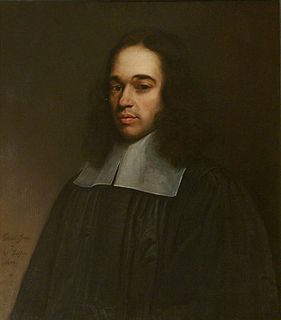A Quote by Benjamin Franklin
That man alone loves himself rightly who procures the greatest possible good to himself through the whole of his existence and so pursues pleasure as not to give for it more than it is worth.
Related Quotes
Know that the difficulties which lead to confusion in the question what is the purpose of the Universe or of any of its parts, arise from two causes: first, man has an erroneous idea of himself, and believes that the whole world exists only for his sake; secondly, he is ignorant both about the nature of the sublunary world, and about the Creator's intention to give existence to all beings whose existence is possible, because existence is undoubtedly good.
How does one chip off the marble that doesn't belong? ... That comes about through five things: humility, reverence, inspiration, deep purpose, and joy. No great man has ever wise-cracked his way to greatness. Until one learns to lose one's self he cannot find himself. No one can multiply himself by himself. He must first divide himself and give himself to the service of all, thus placing himself within all others through acts of thoughtfulness and service.
The man who has given himself to his country loves it better; the man who has fought for his friend honors him more; the man who has labored for his community values more highly the interests he has sought to conserve; the man who has wrought and planned and endured for the accomplishment of God's plan in the world sees the greatness of it, the divinity and glory of it, and is himself more perfectly assimilated to it.
Good work is no done by "humble" men. It is one of the first duties of a professor, for example, in any subject, to exaggerate a little both the importance of his subject and his own importance in it. A man who is always asking "Is what I do worth while?" and "Am I the right person to do it?" will always be ineffective himself and a discouragement to others. He must shut his eyes a little and think a little more of his subject and himself than they deserve. This is not too difficult: it is harder not to make his subject and himself ridiculous by shutting his eyes too tightly.
See that unfortunate soldier who is falling hurt to death ("tombe blessé à...", Fr.) on the battlefield; he learns that his folks have vanquished and dies happy. He detached himself from himself (s'est détacher de lui-même", Fr.), has identified himself with something greater and more lasting than himself; his homeland ("patrie", Fr.); thus, while dying as an individual, he has the certainty to survive in a larger existence.
Man can will nothing unless he has first understood that he must count on no one but himself; that he is alone, abandoned on earth in the midst of his infinite responsibilities, without help, with no other aim than the one he sets himself, with no other destiny than the one he forges for himself on this earth.
Nothing about his life is more strange to [man] or more unaccountable in purely mundane terms than the stirrings he finds in himself, usually fitful but sometimes overwhelming, to look beyond his animal existence and not be fully satisfied with its immediate substance. He lacks the complacency of the other animals: he is obsessed by pride and guilt, pride at being something more than a mere animal, built at falling short of the high aims he sets for himself.

































